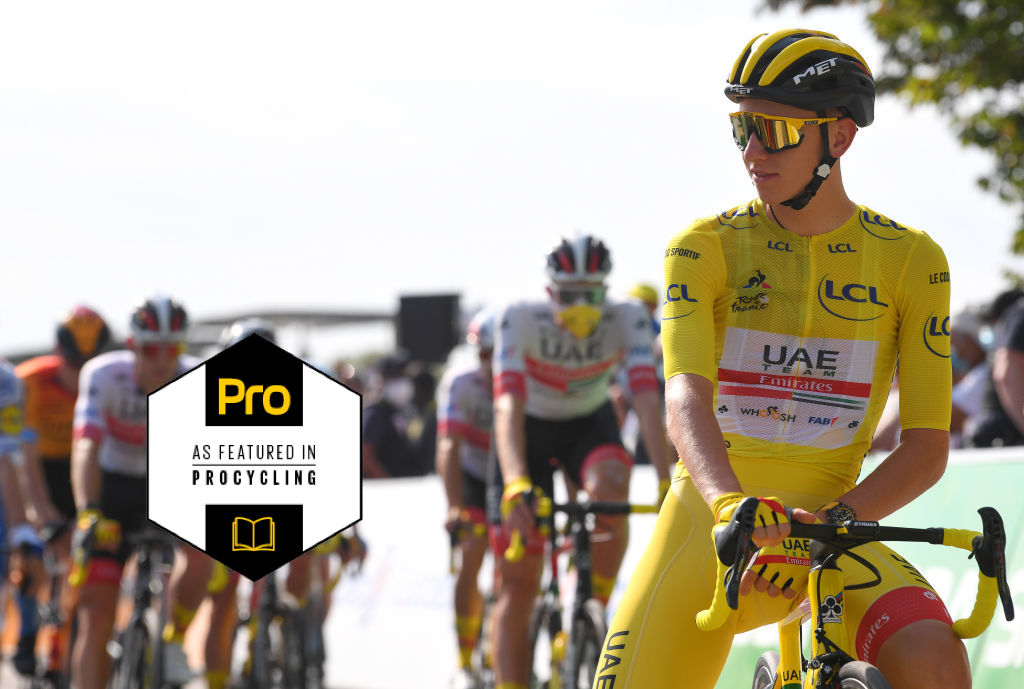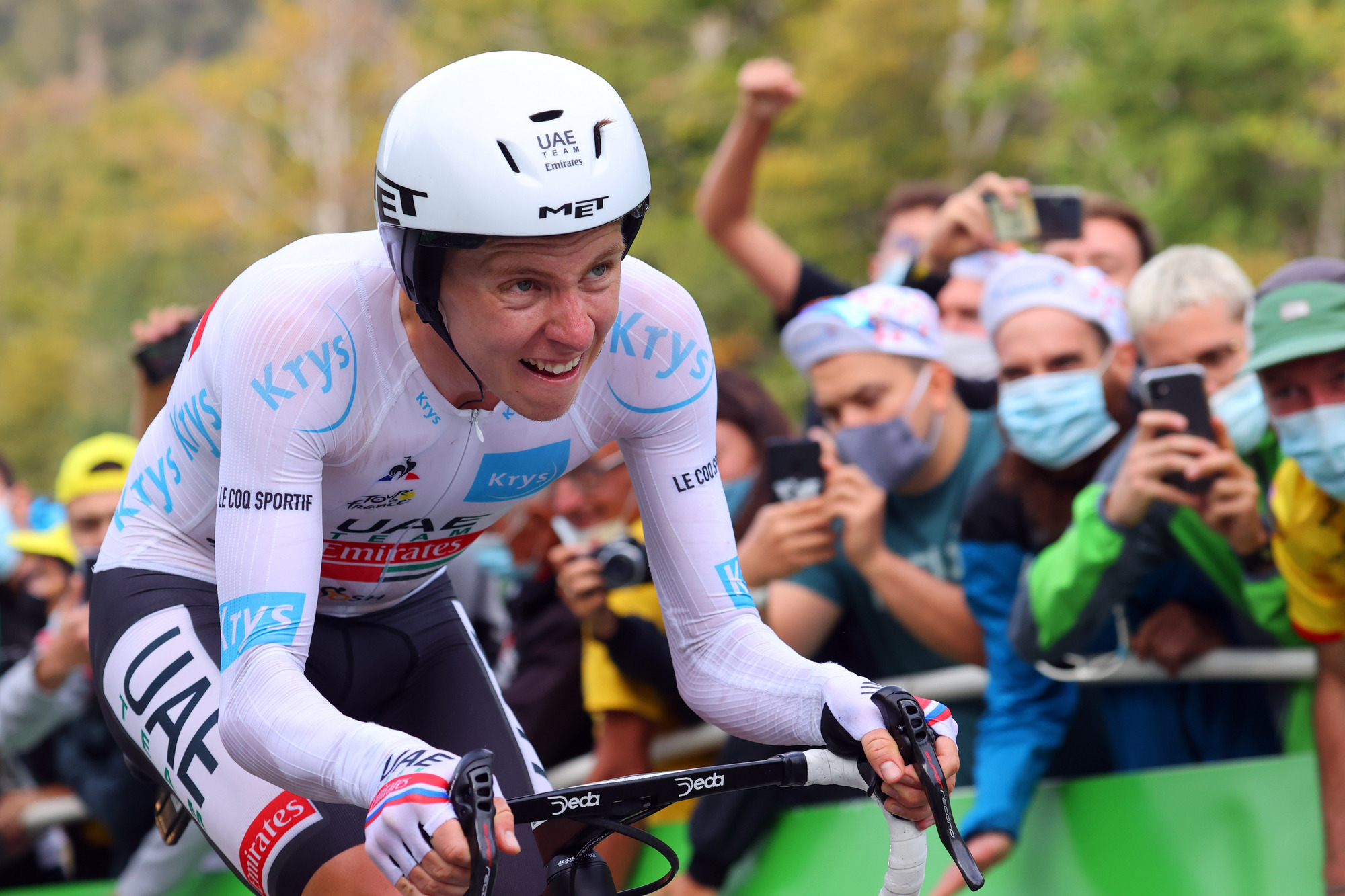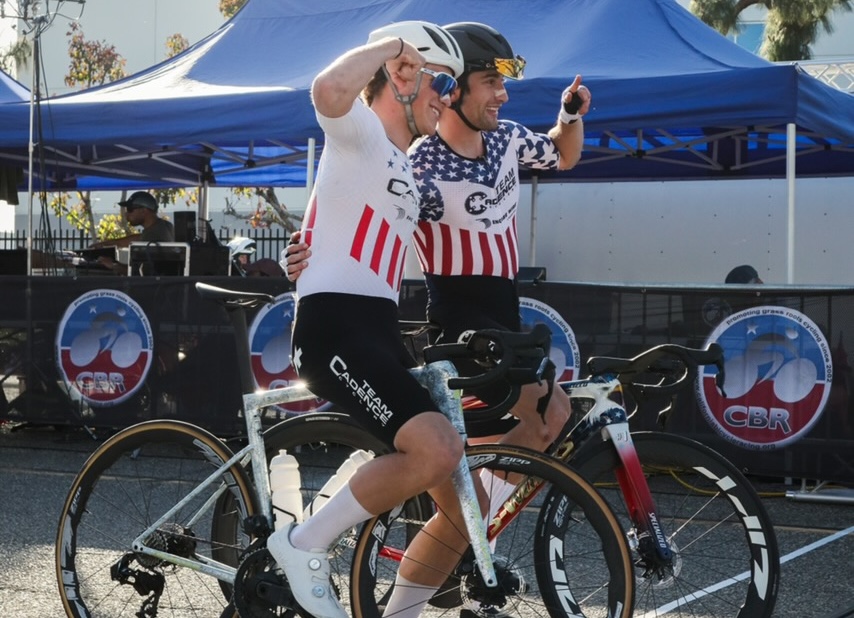Tour de France analysis: The Pogacar era
Victory in the Tour de France shows his time is now, and could well be for years to come

The latest race content, interviews, features, reviews and expert buying guides, direct to your inbox!
You are now subscribed
Your newsletter sign-up was successful
There was a moment on stage 18 of the Tour de France, after the leaders had crested the Montèe du plateau de Glières, when the man in yellow, Primož Roglič, put his hand on the back of his young challenger, and fellow Slovenian, Tadej Pogačar, and said something. When asked at the end of the stage, Roglič claimed not to remember what he’d said, but it’s not too much of a stretch to imagine it was something the subtext of which might have been: "Good try, you’ve got years ahead of you, better luck next time."
Roglič’s lead looked unassailable after the last difficult road stage; he looked the stronger than a fading Pogačar on the ludicrously mountainous stages 17 and 18, certainly. He had a lead of 57 seconds, and there was no way he was going to blow that on a time trial that was supposed to suit him, was there?
It wasn’t until 4km to go that things became agonisingly clear for Roglič and Jumbo-Visma. He was losing the Tour de France. Usually so smooth, with a regular cadence, Roglič was swaying from side to side, getting out of his seat on the climb, attempting to cling on to a yellow jersey that now seemed to be sand in his hands.
Meanwhile, Pogačar, a man nine years his junior, at his first Tour, his second Grand Tour ever, was powering away in the saddle, making La Planche des Belles Filles look like a small bump in the road, focused on smashing through the final kilometres.
By the time Roglič made it to the finish, after 6pm local time, he looked like a broken man. His aero helmet pushed back on his head, his strained pallid complexion clear for all to see. He had given it all, but shipped almost two minutes to Pogačar. This wasn’t supposed to happen.
The television cameras cut to Jumbo-Visma team-mates Tom Dumoulin and Wout van Aert - who before Pogačar’s effort were first and second on the day - standing in shock and disbelief at the finish line. Van Aert, arguably the best cyclist in the world right now, told reporters afterwards: "It hurt my eyes how Primož got more and more into difficulty… We went all out every day. We gave everything and did everything perfectly. We were ready to celebrate." This wasn’t supposed to happen.
Roglič and Pogačar - Rog and Pog - are very different riders and people, despite coming from the same small country (one is obliged to say Slovenia is about the size of Wales, with a smaller population, of about two million). They are from completely different generations, for a start, Rog born before the worldwide web, Pog born after Google was founded.
The latest race content, interviews, features, reviews and expert buying guides, direct to your inbox!
Roglič came to cycling late, aged 22, and through a lot of graft and effort, has risen to the top. He is a key cog in Jumbo’s plan to challenge the Ineos hegemony in the Grand Tours, and seemed to be on course to complete that goal, which partly began with his first Grand Tour stage win, in a time trial at the Giro d’Italia in 2016. Remember, Roglič is good at time trials.
His win at the Vuelta a España last year confirmed that he was one of the handful of riders who could win the Tour, and the return of racing post-lockdown this year only pointed in one direction: Jumbo domination. The team in yellow and black, dubbed the killer wasps, swarmed to the front of the peloton and controlled the pre-Tour races, and have done the same job at the Tour for their leader.
Dumoulin, the former Giro champion, put himself fully in the service of Roglič, and one wonders what someone like Van Aert could have done had he been let off the leash of riding for the team. Considering the Belgian still managed to win two stages, the mind boggles.

Pogačar, by contrast, is a precocious talent, a once-in-a-generation specimen. At his winner’s press conference, he said: "It's genetics. I have to thank my parents for that." He became the youngest winner of a WorldTour race when he won the Tour of California last year, and shot to prominence when he finished on the podium of the Vuelta in 2019, winning three stages on the way, aged 20. He will be the youngest Tour de France winner since 1904 should he avoid disaster today. Not a bad way to celebrate his 22nd birthday, which comes on Monday.
The pair of Slovenians raced La Grande Boucle in completely different ways, too. Roglič, with Jumbo’s sheer dominance, rode defensively for most of the past three weeks, and almost seemed apologetic and reticent when he took the win at Orcières-Merlette on stage 4. He looked incredibly consistent and just very much in control. Jumbo might regret not putting Pogačar under more pressure.
The young Slovenian, in contrast, did not have a strong team to fall back on. His two most reliable climbing allies at UAE-Team Emirates, Fabio Aru and Davide Formolo, looked off the pace and then abandoned the race. The squad had split loyalties, with Alexander Kristoff there for sprint stages, and could not offer any sort of consistent support for Pogačar. This was most glaring in the stage to Lavaur, where the bunch was split by crosswinds, costing him over a minute. But in the high mountains, it didn’t seem to matter, with Pogačar glued to the back of the Jumbo train, following the moves. In the opening fortnight, he also managed to win two stages, at Laruns and the Grand Colombier, gaining back vital seconds on Roglič, and looking like the strongest climber in the race.
Pogačar didn’t need a strong team, he won the Tour with strength, power and aggression. When it came down to man against man on the Planche des Belles Filles, he had all the answers, and Roglič had just questions. During this Tour, Pogačar set new climbing records on the Col de Peyresourde, Col de Marie-Blanque, Pas de Peyrol, Grand Colombier and La Planche des Belles Filles.
When Egan Bernal won last year, aged 22, some predicted that this would be the era of Bernal hegemony. Twelve months on, this prediction looks shaky. Imagine what Pogačar could do with a strong team behind him, and it is easy to think that this could be his era to dominate. The pair are joined by other young riders, such as Remco Evenepoel, and another revelation at this year’s Tour, Marc Hirschi, in an incredible generation that is perhaps already better than their elders.
If that conversation between Pogačar and Roglič on the Montèe du plateau de Glières were to happen now, and Roglič said something like "you’ve got years ahead of you," Pogačar could tell him that his time is now. Welcome to Pog time.
Adam Becket is Procycling magazine’s staff writer
If you like what you read, why not subscribe to Procycling magazine? As part of our autumn sale, a subscription currently starts at just £5 for the first five issues - that’s only £1 per issue. Procycling magazine, the best writing and photography from inside the world’s toughest sport.
Adam Becket is the staff writer for Procycling magazine. Prior to covering the sport of cycling, he wrote about ecclesiastical matters for the Church Times and politics for Business Insider. He has degrees in history and journalism. A keen cyclist himself, Adam’s favourite race is the Tour of Flanders or Strade Bianche, and he can't wait to go to the Piazza del Campo for the end of the race one day.
